Why I didn't march for Palestine
Peaceful protest is an important right, but not all protests bring us peace
I still remember the huge protest march in London against the Iraq war in 2003, but only as something seen on the TV or online. I didn’t go in person, mainly because I lived in America at the time, but also because I was naive enough to believe that people like Tony Blair deserved the benefit of the doubt, and were acting in the nation’s best interest. Now I realise I was a premium numpty, and easily hoodwinked by skilful propaganda in the wake of September of 2001. Thankfully I have learned from this mistake, and grown wiser over the years.
As someone who enjoys doing photojournalism as well as art photography, protests are energising challenges when accompanied by my camera. I have done 25 in the last four years, having never gone to a single one before Covid came. It was tempting to join in the large event in London last weekend, if only to document it, as it was clearly historic. In the end I decided not to, because discretion directed me away from it. A family member with more enthusiasm for the cause was considering going, so I decided to capture in writing the reasons for my disquiet.
Genocide is an appalling crime, no matter who the victim group might be. To object to war crimes is noble, and we have a duty to protect the innocent from systematised violence. Peaceful protest is one of our most precious freedoms, and it is not until you nervously exercise it do you realise its power. The impact is not only on your own psyche, by finding others of a common outlook, but it also captures the interest of passersby. I could probably make a book just from the photographs onlookers! Given the existence of the smartphone and social media, they amplify the message a hundredfold.
Most of the protests I have gone on push an agenda where there is no obvious divisive opposition. You might be tarnished as an “anti-vaxxer”, for instance, for wanting medical informed consent, but in reality there is nobody counter-marching with a demand for the forcible injection of poison through deception. The issues of constitutional rule of law, prevention of crime by government, and conservation of essential freedoms have wide support and go beyond politics or diplomacy.
The matter of “Judea” — divided into Israel, Palestine, the Muslim world, America, and the rest of us — is very different. It is a maximally emotive and contentious issue, with a tangled past. There is little visibility of what’s real on the ground right now. Like the Iraq war, we are bombarded with propaganda. Inside Israel there is also a conflict that is close to civil war, where the judiciary has become a political pawn. An underground battle appears to be raging too, so the images from Gaza are literally only surface deep. Our perception of the situation is rarely the reality.
Participation in a protest against genocide in Palestine is one-sided, given what the Israelis have been subjected to under the Covid tyranny. To be against one genocide, but indifferent to another next door, marks you down as a less than honourable human in my book. This particular march potentially fuels the Hegelian dialectic of problem, reaction, solution, energising an even deeper division via hidden manipulation. Is giving your life force to participation truly aiding the cause of peace?
Then there is the issue of the optics of lending support to Hamas, who themselves appear to be not exactly representative of the Palestinians or their best interest. It adds fuel on fire of Jewish persecution, regardless of whether that feeling is justified. Israel is an Anglo-Zionist project, which traces back to the takeover of society by Continental bankers in early C19th with Napoleonic war. It is a messy situation: while Israel is centre of some unpleasant stuff, especially child sex trafficking, the neighbours have a pretty horrendous record on human rights.
Israelis themselves seem to be victims of a bait and switch, having been promised sanctuary in a country constructed for the purpose of safety for the Jews, yet have been viciously attacked via dangerous state mandated injections. The existence of a rump of Orthodox Jews who vigorously oppose the Zionist project tells us that the matter is far from simple, even if you might get accused of being an anti-semite for having some sympathy with their logic. It isn’t my area of expertise, so I am wary of lending my support to causes I don’t properly understand.
One of the focus points at the weekend was the Cenotaph, which is a potent national symbol. Yet it too is not necessarily what it seems: “all wars are bankers wars” used to steal gold, erase debt, and hide history. Poppies as symbol of opium fields and drug wars, not just the fallen on blood-soaked soil. It can be seen as a mocking of the dead, duped into fighting for causes that they might not have sacrificed for if they had known the deeper dynamics and deception in play. We defeated the Nazis, and destroyed Germany, only to assist the Bolsheviks. Was that really a victory?
Given the tyranny we have endured in the past few years, the outgoing powers would no doubt like to leave behind a civil war in UK. It doesn’t feel like we are far away from one, as many people are very tired of corrupt courts, corrupt police, corrupt schools, corrupt government, corrupt corporations, corrupt banks, corrupt debt collectors, corrupt utilities, corrupt academics, corrupt media, corrupt councils, corrupt doctors, corrupt social workers, and corrupt clergy. Financial chaos and civil unrest would help to cover up war crimes like Covid. Does this particular event take us closer to that awful precipice, or further away?
Do I care about Palestine? Yes. I also care about the ordinary folk in Ukraine being shredded by the war machine, but I don’t “march for Ukraine”. I very much care about my Israeli brothers and sisters who are suffering, too. And those subject to oppression and terror everywhere. Just this doesn’t feel like my conflict. It is a conflation of issues, many of which are more closely aligned to a nationalist versus globalist cultural schism at home. It reminds me of Just Stop Oil: you can be in favour of environmental responsibility and technological progress without supergluing yourself to the street to halt ambulances.
The Palestine protest brought some uncomfortable allies on all sides, in way that you don’t get with medical freedom, disability rights, environmental issues, pay disputes, or child protection. It was too much of a risk to be a useful idiot to a false prospectus, and become tarnished with other less high-minded agendas. Then, not least, was the potential for agents provocateur to do their dastardly thing, or for false flag attacks to cause chaos and bloodshed. I do not criticise anyone who participated, it just wasn’t an event that appealed to my heart in the same way, however just the cause.
To have become an “old hand” at protest marches is somewhat of a surprise to me. I have learned to discern causes that are “divine” from the “profane” ones (like Extinction Rebellion). Some protests have been very small and focused, like on the horrible side-effects of steroid creams when prescribed by doctors. All have been interesting and unique, with their own atmosphere, message, and context. It has been an enriching experience overall, with no cause for alarm or anxiety. I have lost my inhibition over making a visible stand.
Some people seem to relish the adversarial, and if you are marching for better pay, for instance, there is another group of people you can (and must) be angry at. The best protests for me have been very different, being occasions of joy and celebration, even if there is disgust or rage at official wrongdoing. I skipped the Palestine march because it just didn’t land right with me at an intuitive level. Zionism is a massively problematic project, but it isn’t my own personal battle. The restoration of constitutional law at home, equal justice, and full accountability are far more pressing matters than distant vicious tribalism.
If this protest had been a mix of Palestine and Israel flags jointly demanding an end to war and the promotion of humanitarian values, then it would have been remarkable and potent in a different way. That unity alone would have changed the world. As long as one faction is trying to denigrate and dominate another, there is likely no path to peace, other than through a most undesirable obliteration of all opposition. You can care about a cause wile also declining to march for it. All peaceful protests are important expressions of liberty, but not all are wise to participate in.
For me, this one was better missed.



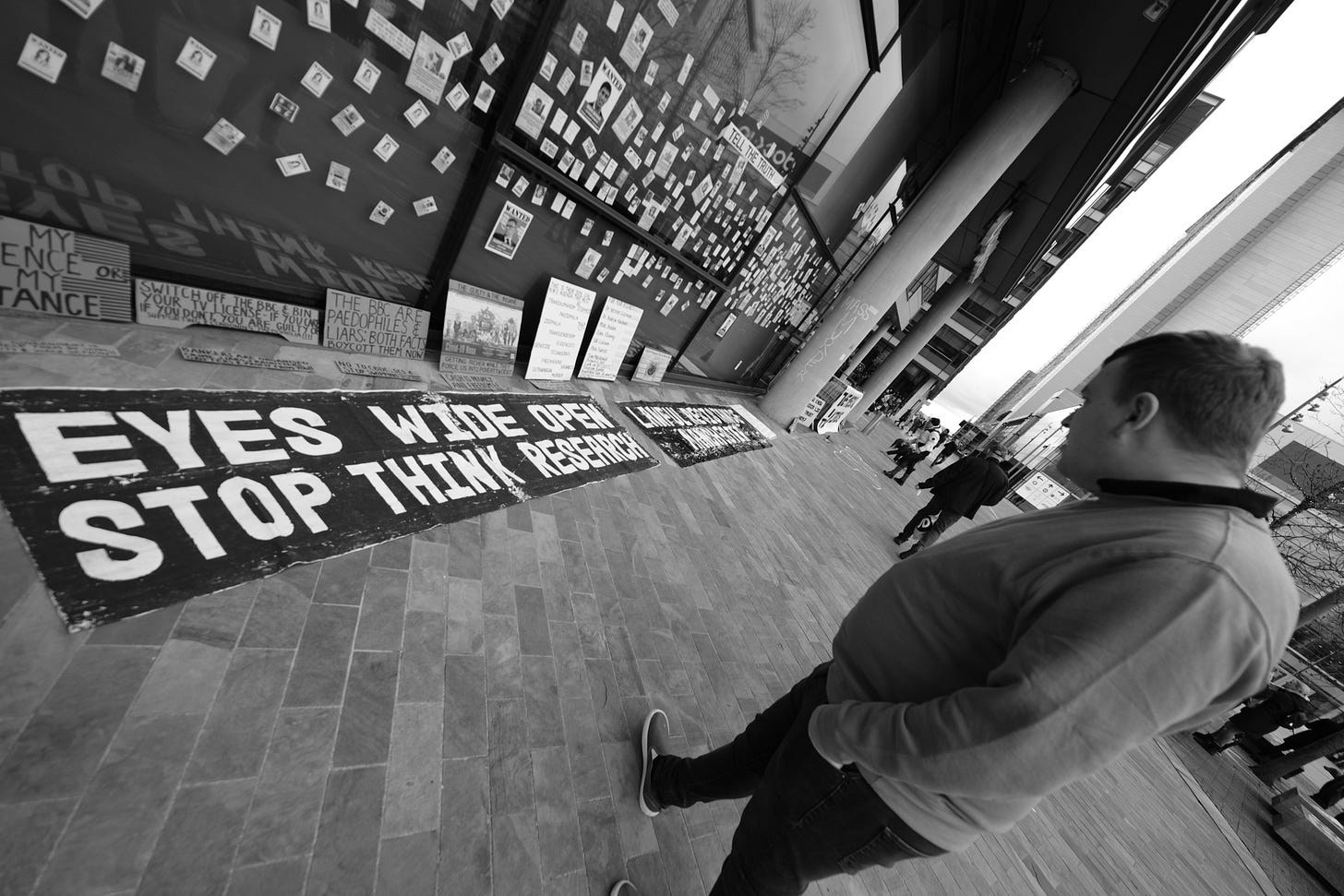
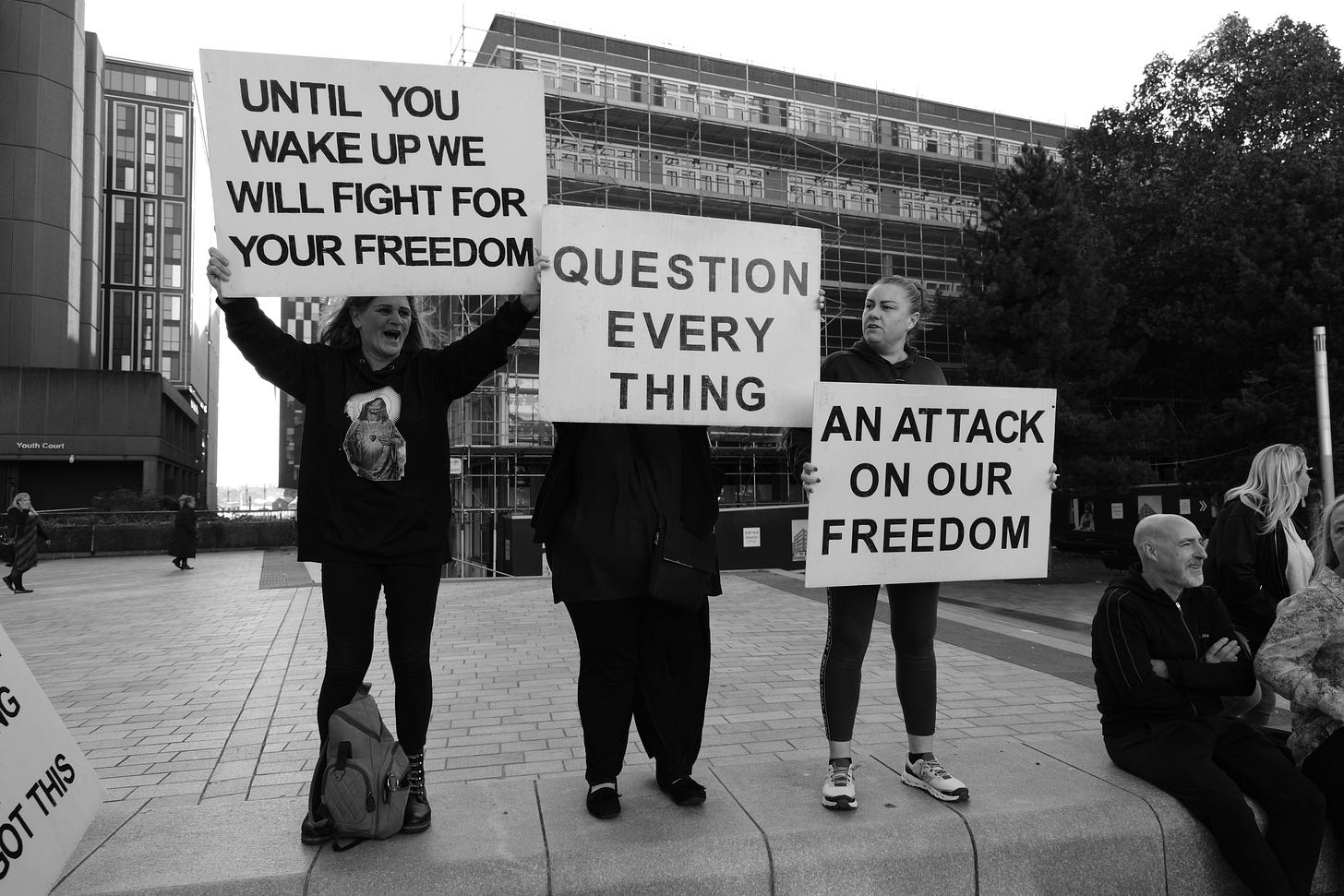
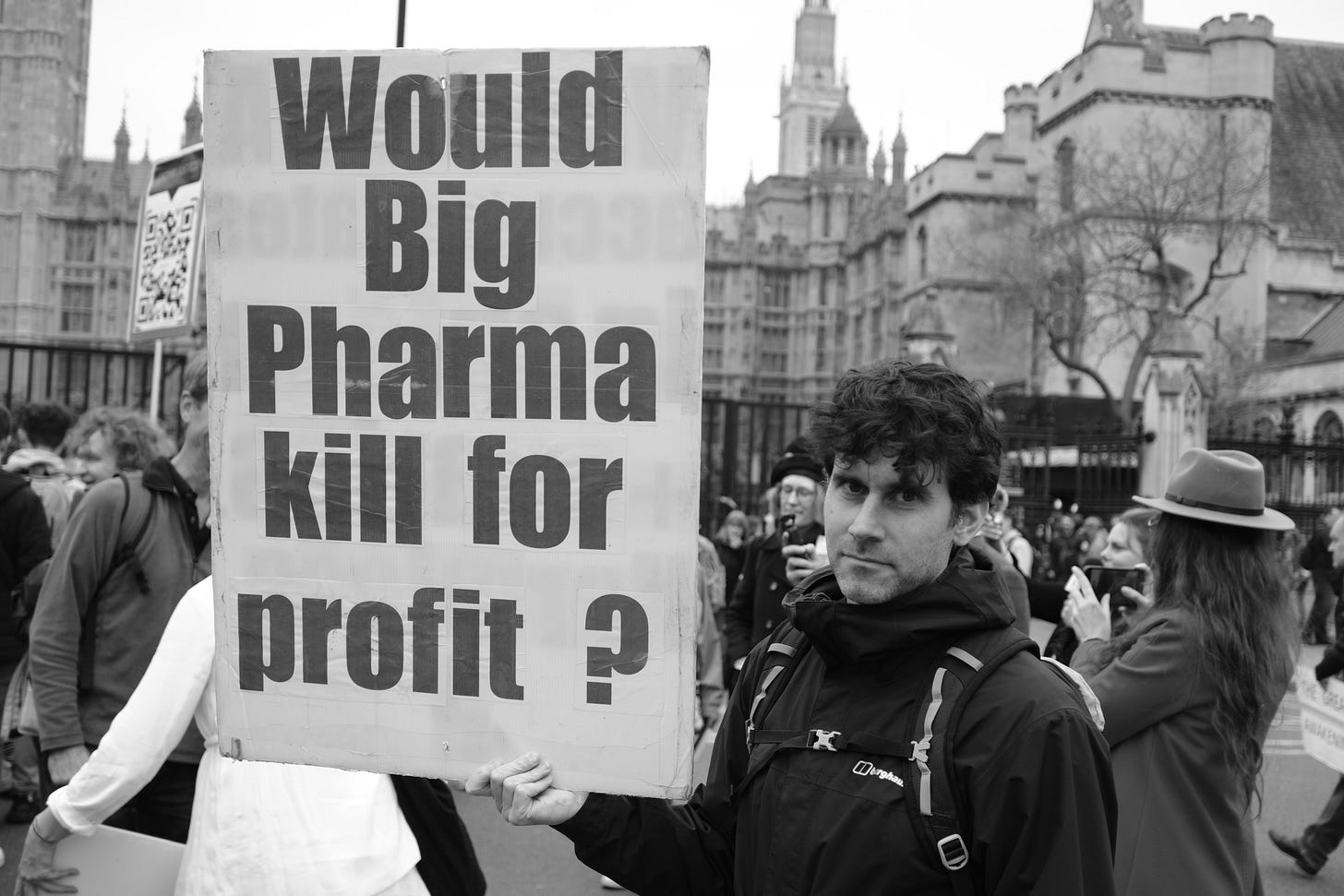
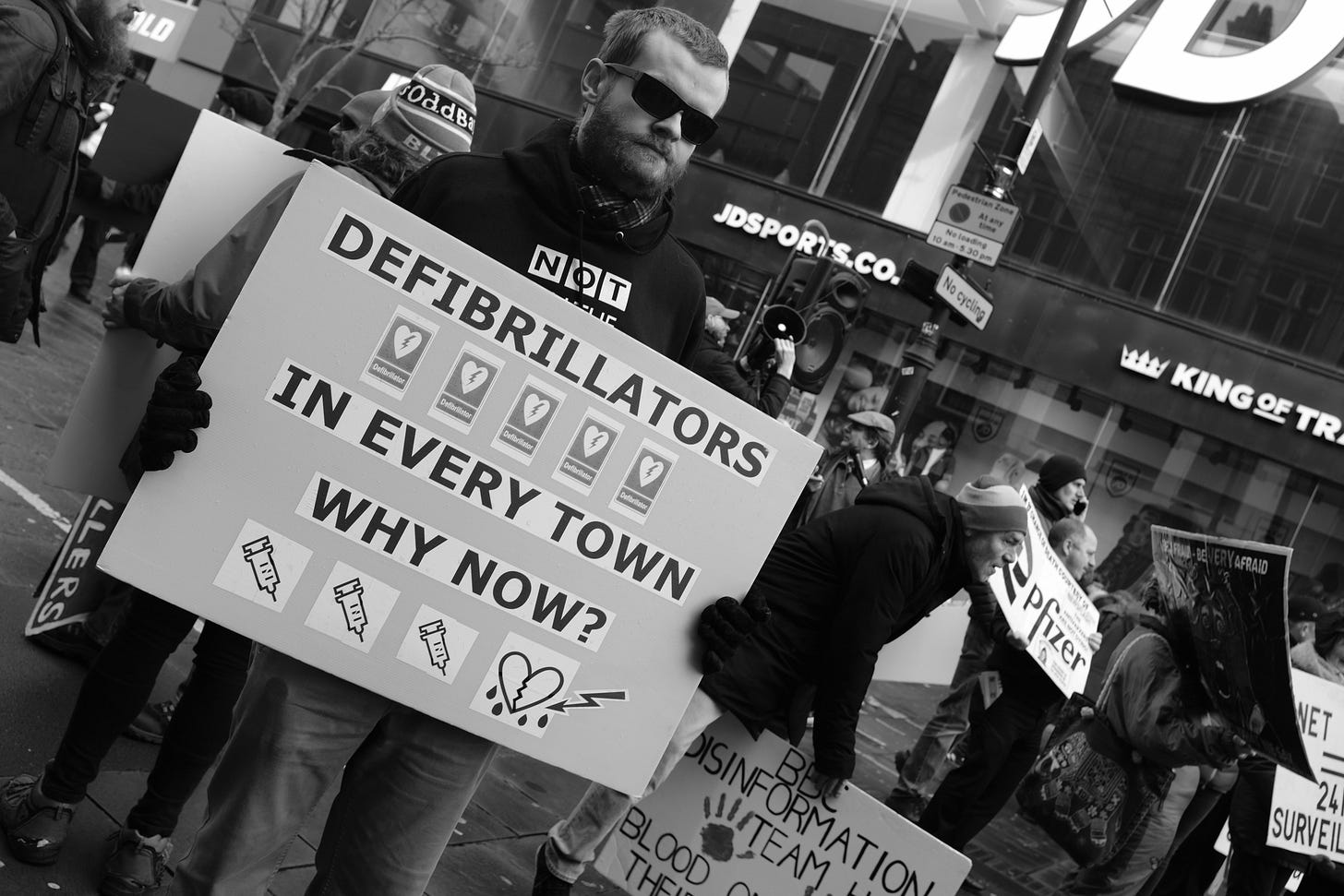
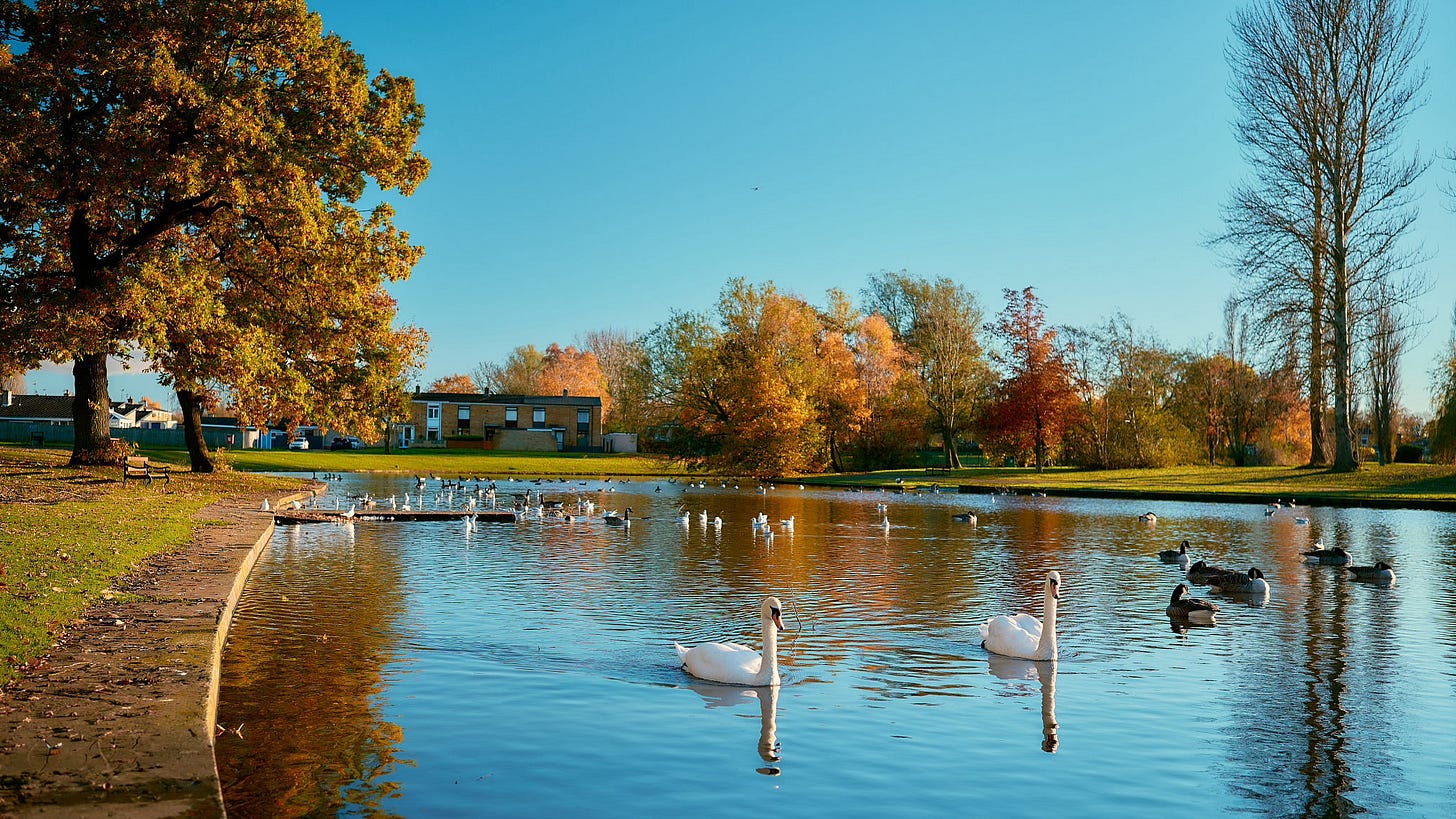
The difference this time, in London AND DC, is that these "protests" were not organic, they were highly organized by the radical islamist terrorists. They were meant to divide and cause chaos. They were in support of genocide.
They were NOT peaceful. They were pushed by the deep state globalists.
Here, they were actually an attempt at a takedown of our government. It was a violent insurgency. It is ongoing, like the riots of 2020, that were also not peaceful, but were orchestrated by the deep state using antifa and the terrorist group "black lives matter".
Liked: "As long as one faction is trying to denigrate and dominate another, there is likely no path to peace," as "a most undesirable obliteration of all opposition" os not really peace, is it?
praying for "someone" who can broker world peace. ❤️